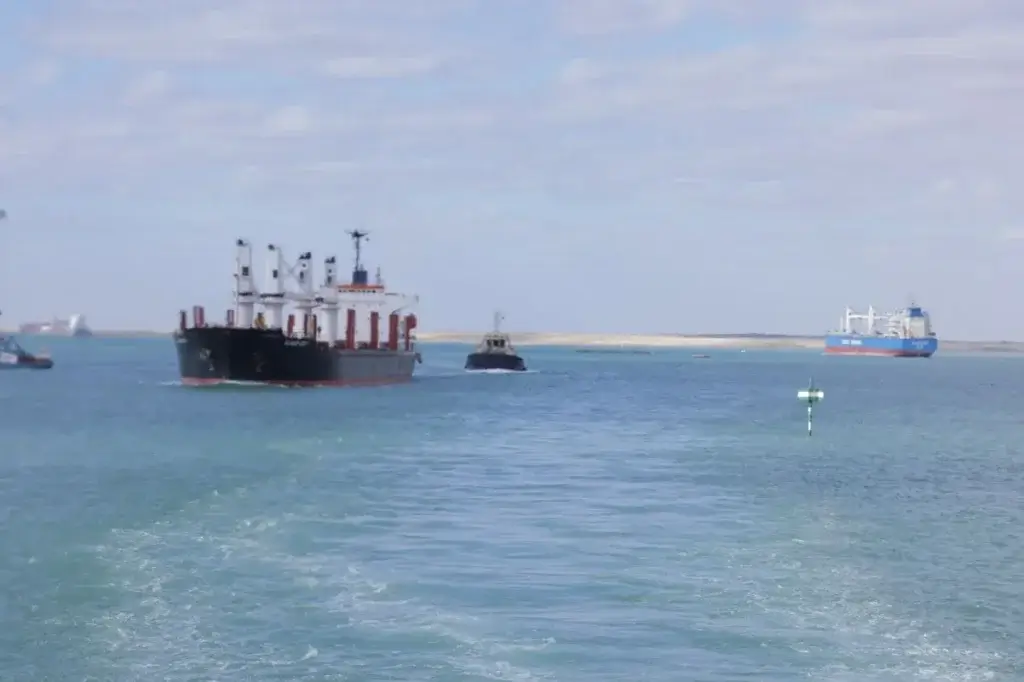According to a report by the Financial Times, the Houthi group’s military chief of staff, Major General Yusuf Hassan al-Madani, wrote to the armed wing of Hamas, the Qassam Brigades, stating that the Houthis were “closely monitoring developments” in Gaza and would resume military operations if Israel restarted its offensive.
“If the enemy resumes its aggression against Gaza, we will return to our military operations deep inside the Zionist entity, and we will reinstate the ban on Israeli navigation in the Red and Arabian Seas,” the letter said, as quoted by the Financial Times.
The letter was posted online by the Houthis’ spokesman but was not accompanied by a formal statement officially ending the group’s maritime campaign.
Two years of disruption
Since late 2023, the Iran-backed Houthis have targeted merchant vessels in the Red Sea and the Gulf of Aden, claiming they were acting in solidarity with Palestinians. The group’s drones and missiles have damaged or sunk several ships and forced many major shipping companies to divert their vessels around the Cape of Good Hope.
According to Al Jazeera, at least nine people have been killed and four vessels sunk since the attacks began. The Financial Times reported that the disruption cut Egypt’s Suez Canal revenues by an estimated $6 billion in 2024, as carriers avoided the area.
At Israel’s southern port of Eilat, activity plunged by around 85% by December 2023, and the port temporarily suspended operations in July 2025 amid mounting debts linked to the Red Sea disruption, according to Reuters and the Times of Israel.
Retaliatory strikes by the United States, the United Kingdom and Israel targeted Houthi positions in Yemen throughout 2024 and early 2025.
Analysts urge caution
Despite the apparent pause, maritime security experts have warned against assuming the threat has passed.
Martin Kelly, head of advisory at maritime intelligence firm EOS Risk, told the Financial Times that the situation remained “extremely fragile” and that the Houthis retained both the “capability and intent to attack with little to no notice.”
Lars Jensen, a leading container-shipping analyst, echoed those concerns in a LinkedIn post on Monday, noting that while the latest Houthi statement “appears to indirectly imply that they are now observing a ceasefire,” it would be “premature to interpret the Houthi ceasefire as a sign of an imminent return by the shipping lines.”
He recalled that the militants also observed a two-month truce earlier this year, between January and March, when a temporary ceasefire between Israel and Hamas was in place, only to resume their attacks once fighting restarted.
“If that was to be the case,” Jensen wrote, “it would require that the shipping lines have changed their risk tolerance compared to their view just eight months ago.”
Implications for global trade
The Red Sea route through the Suez Canal handles around 12 percent of global trade, according to UNCTAD. Any sustained improvement in security could ease pressure on global supply chains and reduce fuel consumption, freight rates and insurance costs for Asia–Europe services.
However, as Reuters has noted, most shipping companies are likely to adopt a wait-and-see approach before returning to the route, given the Houthis’ history of abrupt escalation.










